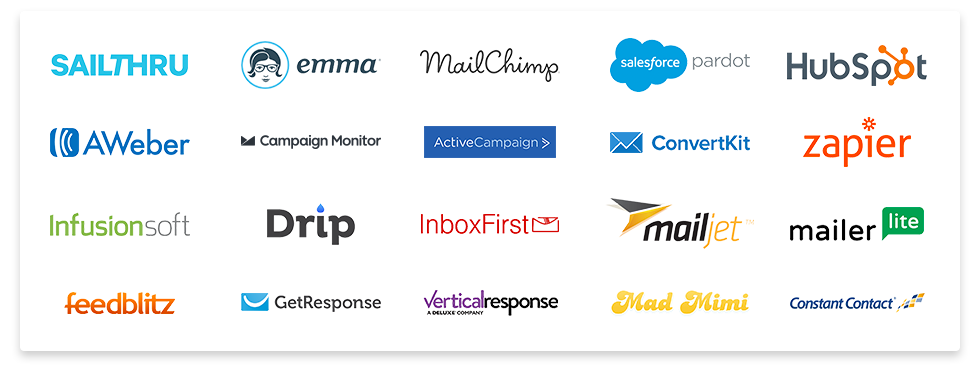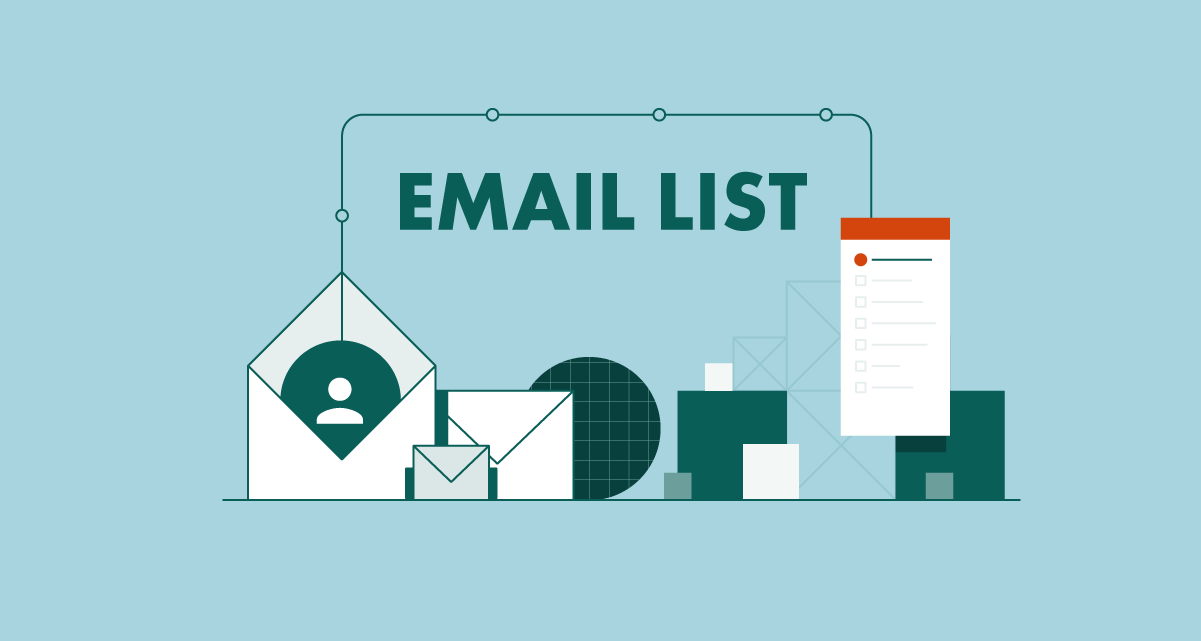New Info On Selecting A Hospital CEO Email List
Wiki Article
What Should I Think About Prior To Buying The Family Medicine Email List?
There are a variety of factors to consider when purchasing an email list for Family Medicine. This will guarantee you high-quality data, which is accurate and in compliance with the law, to use in your marketing campaign. Here's the things you must be aware of: 1. Data Accuracy and Quality
Source of information: Confirm that the provider gathers information from trusted and verified sources. This includes licensing bodies, medical directories professional associations, or an opt-in database. Family medicine physicians' email addresses should be up-to-date and relevant to the target audience.
Verification process: Find out the provider's verification procedure. To get rid of invalid or inactive emails the email list is regularly cleaned and kept up to date. Validated messages decrease the number of bounces and improve delivery.
Segmentation Options : The range of options should allow for segmentation by criteria like geographic location, years of experience, the size of a practice or the specific areas (e.g. pediatrics, geriatrics or preventive medicine). Segmentation can be used to increase engagement through more targeted outreach.
2. Legal Regulations
Data Privacy Laws Ensure that your list complies both with General Data Protection Regulations (GDPR), in Europe as well as the California Consumer Privacy Act, (CCPA) which is in the U.S.A. Email addresses should only be gathered with consent and legally to avoid legal sanctions.
CAN SPAM Act Compliance: When you run email campaigns in the U.S.A. Be sure to comply with the CAN SPAM Act. Also, you should include opt-out procedures that are clear and refrain from misleading or deceitful subject line details.
Check to see if email addresses have been collected via opt-in consent. This means that physicians practicing family medicine consented to being contacted by third parties via marketing communications. This guarantees that privacy laws are being followed and decreases the likelihood of receiving spam complaints.
3. Provider Reputation
Select a reliable provider that has proven experience in providing data that's high quality and compliant. You can look up reviews and testimonials or cases studies about the provider to make sure that they're trustworthy.
Transparency. The service provider must make it clear how and when the data is updated. It's a warning sign if the company is not able to describe how they got their data.
Customer Support: Ensure the company offers reliable customer service. It is possible that you need help with technical issues, list segmentation and/or ensuring that your list is in compliance.
4. Cost as well as Return on Investment (ROI)
Pricing Models. There are different pricing options available, such as flat fees or subscription services. It is important to choose a pricing structure that's in line with your budget.
Refund and Replacement Policy Trustworthy providers offer the option of a replacement or refund for invalid or outdated email addresses that are invalid or outdated. Clarify the terms of this policy before purchase to safeguard your investment.
Do not fixate on the cost alone. Even though a low-cost list may seem appealing however, it could result in poor delivery and large bounce rates. It is better to buy a premium list that provides better targeting and higher engagement rates.
5. Ownership and use of data
Single Use vs. Multiple Use: Clarify whether you can utilize the list in multiple instances or if it's intended for one-use only. Lists which allow for multiple campaigns have more value especially if you're creating ongoing outreach.
Exclusive vs. shared lists: Determine whether the list is yours exclusively or is being distributed to other buyers. Lists that are exclusive to you will less likely result in crowds that are too saturated and usually have higher engagement rates.
6. Data Format and Integration
CRM Compatibility. Check that your list of email addresses has been designed in a manner that is compatible with the program that you employ to manage customer relationships (CRM). This makes it easy to integrate and also makes it easy to use.
Easy To Use: Make the list easy to filter or segment based on the criteria most important for your campaign. This will help you streamline your message and targeting efforts.
7. Ethical Questions
Relevance of Outreach: Family medicine practitioners are highly-skilled professionals Therefore, ensure that your outreach is pertinent to their work. Avoid messages that are generic or unrelated to the practice since this can harm your brand's reputation and lead to lower engagement or complaints about spam.
Avoid Spam Practices. Send emails strategically. Avoid sending too many emails. If you send too many emails, or offering irrelevant offers may cause unsubscriptions or spam reports.
Click here to view the full article. Click here to view the full
When you purchase the Family Medicine email list, be sure to consider data quality, legal compliance, and the reputation of the provider to ensure that your outreach efforts are successful. Find segmented, verified data that's compliant with privacy regulations and is in line with your intended audience. By investing in a high-quality list and sending relevant messages, you'll boost engagement rates and increase the ROI of your marketing. Follow the top family medicine email list for more guide.

What Should I Be Thinking About When Buying An Oncologist's Email List?
Be aware of these aspects when buying an oncologist's email list. This will ensure that the list you purchase is of high-quality, in compliance to the law, and is tailored to your specific marketing needs. Here are some important factors to consider. Data quality and accuracy
Source of Data: Make sure that the information comes from reliable and trustworthy sources such as medical directories, professional associations or databases for healthcare. Beware of lists that are not reliable or unknown sources. They may contain inaccurate and outdated information.
Verification Process: The list provider should have a robust verification procedure in place to ensure that email addresses are accurate legitimate, valid, and active. The provider should regularly clean and update the list in order to eliminate inactive, incorrect contacts, or duplicates and ensure that the list is delivered at a higher rate.
Segmentation. A quality oncologist's email list should provide segmentation. Being able to filter the list by subspecialties (e.g., pediatric oncology, surgical oncology, hematology-oncology), geographic location, years of experience, or institution allows for more targeted outreach, increasing the likelihood of engagement.
2. Legal Regulations
Data Privacy Regulations – Ensure email list complies regulations on data privacy, such as the General Data Protection Regulations in Europe or the California Consumer Privacy Acts in the U.S. The email addresses must be collected and treated legally while respecting the right to consent and privacy.
CAN SPAM Act Compliance: Ensure that all campaigns in the U.S. comply with the CAN SPAM Act, which regulates commercial email communication. This includes incorporating an opt-out option in your emails, using precise subject lines and not misleading recipients with deceptive information. Non-compliance will lead to penalties as well as damage to your brand.
Opt in Consent. Be sure that all emails listed are collected through opt-in consent. Oncologists need to have given consent to receive marketing messages. This helps ensure the privacy laws are in compliance and minimizes the risk of legal issues or complaints about spam.
3. Provider Reputation
Reputable List Provider: It is essential to buy your data from a list supplier with a solid track record in the industry. Review their credentials, background information and reviews and testimonials as well as case studies to determine their reliability and the accuracy of their information. Established companies are more likely to provide accurate and compliant lists.
Transparency: Providers should be transparent in terms of how they source their data, when it's updated and what verification methods used. Transparency issues could be a red-flag and indicate poor quality data.
Customer Support - Choose an organization that provides prompt assistance in the event that you require assistance in integrating, segmenting, or complying with regulations.
4. Cost and Return on Investment
Pricing Structure: Know the pricing model--whether it's dependent on the number of contacts, a set fee, or subscription-based. Price should be compared to your marketing budget, and the ROI (return on investment).
Refund or Replace Policy: A reputable provider will offer a guarantee of replacement or refund for incorrect or outdated email addresses. Clarify the terms of purchase before you make a purchase to ensure your investment is protected.
Value for Money: Don't focus only on the cost. Even though a cheaper mailing list may be appealing, it can ultimately hurt the campaign in case it leads to poor engagement or delivery. Consider the importance of your list by making sure that it offers accurate, relevant information.
5. Ownership of Data and Usage
The list could be used for only one campaign or you may own it for future use. Owning a list can provide greater flexibility and benefits if you are planning several campaigns.
Exclusive vs. Lists shared: Decide which list is for you or shared with several buyers. Exclusive lists are more beneficial because they decrease boredom in the audience which leads to increased engagement.
6. Data Integration and Format
Compatible with CRM: Ensure that the list is easily imported to your customer relationship management (CRM) system or marketing software. The list should be in a format that can be easy to integrate, like CSV and Excel.
Easy Segmentation: The list must be simple to manage and segment within your CRM. Being able to filter quickly by criteria like oncology subspecialty or geographic location will allow you to tailor your marketing campaigns more effectively.
7. Ethical Questions
Relevance in Messaging Oncologists is a high-skilled professionals with very busy schedules. Your message should be pertinent to their work or to their interests. Examples include medical equipment, ongoing educational opportunities, as well as pharmaceutical advances. Relevant emails can lead to lower engagement and an unfavourable brand reputation.
Avoid spam: Do not send out unsolicited email or large amounts of emails. This can lead to complaints about spam. To keep your readers interested, you should send out emails frequently.
Conclusion
When you purchase an email list of cancer specialists, you must consider accuracy of the data and legal conformity. Also, consider the credibility of your supplier. Be sure that the list is segmented and is tailored to the audience you want to reach. It is possible to develop a legally compliant efficient outreach strategy by taking into consideration these aspects. This will increase the engagement of your audience and yield impressive outcomes. Have a look at the most popular oncologist email list for blog guide.
